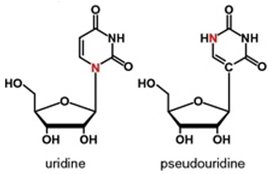Shen et al (Nature Methods, 2017) explore and identify synthetic interactions among 73 cancer-associated genes. To perform their loss of function screen they combined CAS9-expressing cell lines with a sgRNA library of high titer lentiviral particles. Most of these gene interactions were subsequently validated by drug treatment.
Doing CRISPR sgRNA screening
We can distinguish 2 methods: A, Pooled screen and B, Knockout screen using arrayed sgRNAs. In both case, the principle is to deliver sgRNA library into a CAS-9 expressing cell line and to lead to loss of function. The following screening is ideal for drug target discovery or signalling pathway exploration.
sgRNA libraries can be provided as pools or individually. They can be ready-to-transfect plasmid or lentiviral particles for transduction. Contact us if you need any assistance with this, we’ll be pleased to advise!
Several applications with CAS9-expressing cell lines
We already offer more than 40 ready-to-use CAS9-expressing cell lines. And notably, we have just released a high-fidelity CAS9-expressing HEK293 cell line.
Applications
- High-throughput knockout screening with many sgRNAs, either individually or in pools
- Convenient validation of several drug target candidates
- Validation of sgRNA cleavage activity
Prompt and clean cell line establishment
We can can develop a stable CAS9-expressing cell line with your cells of interest. Thanks to the Safe Harbor technology it can be done within 2 months for Human and Mouse cells. It is clean, no random insertion in the genome but a targeted integration at AAVS1 for Human and ROSA26 for Mouse. Just let us know your cells of interest!





